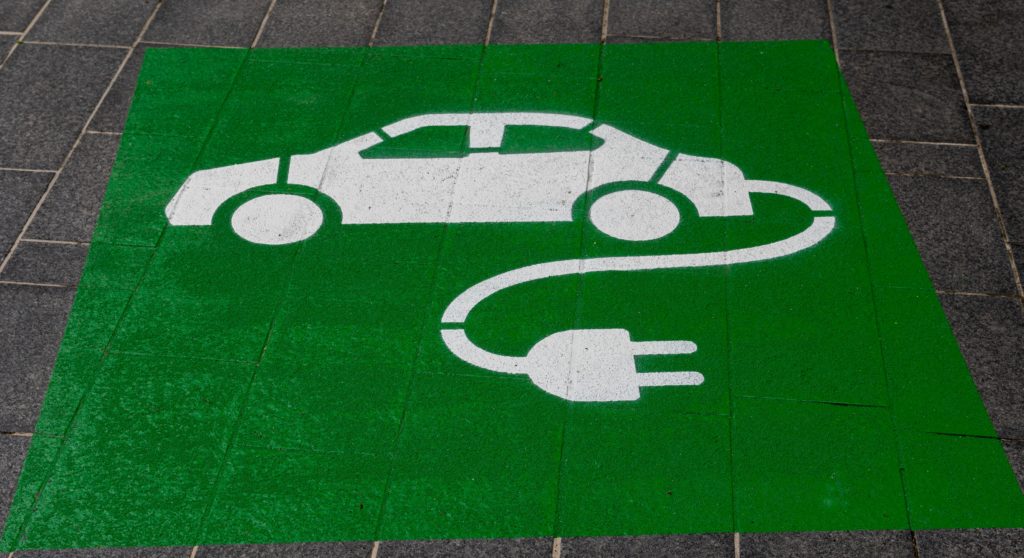Welcome to my blog, a space to get more information on sustainability practices and learn about what it’s like to work with a copywriter. I understand that working with a copywriter is a big investment, but I need you to know that it is one of the best that you’ll ever make.
As a green business owner, you are already doing so much more than “normal” businesses. Work with someone who will champion your brand, sell your products, and be your biggest fan. The world can’t afford for you to wait, but if you need a little more reassurance first, please check out some of my blog posts!

White papers are long, complicated documents that help guide clients through a client journey. Given their slightly persuasive yet mostly informative nature, you can’t simply open your laptop and type away to produce a white paper in an afternoon. You must be sure you’re actually ready for a white paper and know how to avoid […]

With all the content that’s created on a daily basis, getting your ideal customer’s attention takes more than a fun Instagram post or a once a month blog. Especially for B2B organizations. It’s important to tangibly show the transformation your product or service can make in someone’s life. The best way to do that is with case studies.
A case study documents a real-life story where a customer used your product or service to overcome an obstacle or achieve a goal. Case studies are a window into your business to show your clients the results they, too, can get. They’re proof that your product or service is the real deal.
Case studies allow you to focus on your ideal customers, tell a great story that gets remembered, and build trust with the people you want to work with most.
#1: Case Studies Showcase a Transformation
Your marketing should focus on your customers. We think you’re awesome and love hearing about you. But your audience isn’t truly interested in your products or services. They’re interested in the transformation you can provide when they work with you, or buy your product.
How can your product or service help make their lives better? That’s what a case study shows them. Rather than focusing on the business or product case studies allow you to focus on the transformation one of your customers experienced. This social proof can build trust with potential customers that you’ll be able to change their life.
- Have you helped a unique organization divert an impressive amount of waste that would have otherwise been sent to landfills?
- Have you helped a business make a huge reduction to their carbon footprint?
- Did selling your products in bulk change the environmental impact of an organization?
All these situations would make great case studies, as they all involve transformations.
Case studies tell your customers that your main priority is their success and transformation. And case studies show them exactly how that transformation is possible for them, too.

#2: A Great Story Sells Itself
Everyone loves a true story that comes with a happy ending. As humans, we’re naturally connected with narratives and when a story is really great, we remember it. Sometimes even for years!
Case studies tell your business’ success story by using real-life experiences that your audience can relate to. Like most great stories, a case study has three important parts:
- relatable characters
- a conflict that must be overcome
- a resolution
Think of your case study customer as your hero. You’re a helpful narrator that moves the reader through the hero’s journey. An insurmountable problem is portrayed, and the hero finds a solution (or happy ending) in your product or service
This conveys to the readers that the hero’s best decision was choosing to go with your company’s product or service.
#3: Case Studies Build Trust with Prospective Clients
Working relationships are built on trust, and trust can often start with a case study. Roughly 95% of customers read reviews before purchasing something. They want to know if they can trust your business. They need their doubts addressed so they know that your product or service will do what you claim it will.
Focusing on real people and the benefits they’ve experienced creates immediate transparency and credibility for your business.
While a good story grabs your audience’s attention, facts move people to action. By providing results, cost savings, or before and after statistics in a case study, you’ll give your audience an idea of the results they can achieve if they buy your product/ service.
One case study could build this trust with 100s of potential customers. Which can lead to more clicks, calls, and sales.

#4: Case Studies are the Next Best Marketing to Word of Mouth
Another reason 95% of customers read reviews before purchasing something is because people like to learn from others before making a decision. This helps them avoid making a mistake they could’ve avoided.
And 90% of consumers in the last year have used the internet to find a local business. This is because most people know that one quick online search can save them from wasting their money or having a bad experience.
Case studies share real experiences with your business from real people. People who have the same struggles and desires they do. Reading a case study makes the audience feel understood, soothes doubts, and persuades the reader to take that next step.
#5: Case Studies are Quick and Easy to Read
An engaging case study educates the audience about your business in a short amount of time. The most valuable commodity anyone could give your business isn’t money, it’s their time. Case studies capitalize on the limited amount of time that people have and help them make big decisions.
Did you know that the average case study is only two to five pages? While there are some longer case studies, a shorter study can be just as persuasive, if not more so as the information is easy to digest.
In one quick glance a customer can learn about your business and the transformation you provide. After that, they’re one step closer to becoming a customer.
Creating a Case Study
Case studies are extremely effective but highly undervalued. In fact, most companies aren’t using case studies as one of their primary forms of marketing. These comprehensive yet quick reads will help your business stand out in the crowded sea of content on the internet.
So, how does one write a case study? Case studies can take a lot of time and research to get right. Let’s be honest, you have a business to run and a planet to help save. Consider teaming up with a case study copywriter.
A case study copywriter combines your story with client research, and copywriter best practices to keep your brand top of mind and to help your customers make a conversion.
Schedule a free 15 minute call. We can discuss your brand’s impact, the best customers to write case studies for, and how your case study fits into your client journey.
You can review reports that we did, similar to case studies in our portfolio.

White papers are incredibly technical documents that are helpful for the reader and move them through the customer journey. They’re great for acquiring new leads and closing sales….but only if you have a great white paper writer. The ability to provide helpful information while subliminally nurturing a sale isn’t a skill all copywriters have.
A great white paper writer can deliver a stack of well-researched and engaging pages that capture the true essence of your brand ethos and position you center stage as the only and long-awaited answer to your customer’s problems.
The first step to finding the right writer for your project is to outline what you’re looking for in a writer.
Pro Tip: There are (at least) four things every white paper copywriter you work with must have. These tips will save you time and help you eliminate writers who might not actually be ready to take on a white paper. Once you understand what to look for, you’ll be ready to start interviewing writers.
Here’s what to look for!
#1: Experience Writing in Your Industry
If you’re reading this, there’s a high likelihood you’re a sustainable home builder, agriculture specialist, waste diversion expert, or product designer. That’s what I write in. And if you’re looking for a white paper, you sell valuable services and/or products to other businesses.
When searching for a writer who can boost your revenue, you’re going to want to choose an expert in your industry—someone who eats, sleeps, and breathes sustainability. If sustainability isn’t your industry, feel free to insert your industry every time we say “sustainability” from here on.
Look for a writer who is fluent in your industry’s jargon and has a general familiarity with your target audience. A writer who’s niched in your industry will be able to hit the ground running on your project, without having to sort out the differences between ESGs and the EPA. They also might have helpful insight into your industry that could better support your white paper research.
Whether you’re using a white paper to grow your email list or nurture leads into becoming high-paying customers, having an industry expert on your team is your express ticket to customer loyalty, bigger checks, increased authority and more referrals.
It’s worth it to narrow down your search to a copywriter in your niche to support your white paper projects.

#2: Experience Writing White Papers
There is one exception to the niched copywriter… and it’s the second thing to look for in a copywriter. Try and find a writer who has experience writing white papers. If white papers is the only service a writer you find provides, and they crank out drafts for multiple industries, you can likely trust them with your white paper.
In the copywriting world, this is called “vertical” niching, which means they’ve niched in writing one type of copy for any industry. Copywriters who have niched “horizontally” will write different types of copy in one industry.
If you find a copywriter with white paper experience in your industry, then you’ve likely found your perfect fit. If this type of writer isn’t an option for you, consider these questions during your copywriter search:
- What experience does the writer have with writing white papers in your industry?
- How in-depth and involved is their research process?
- Are they adept at transforming dense information into appealing long-form content?
Prescreening for a quality writer will make a big difference in the long run. During the writing process you won’t have to do any hand holding. Less calls and less emails is a win for everyone. You can hand your white paper project over and rest assured that your pages will be written well.
Expert storytelling + extensive research + sustainable know-how = helpful and snore-proof compelling content
Whether this is your business’s first white paper or you’ve published several already, an experienced writer can give creative direction, help you exceed your business goals, and get more money rolling in.
#3: The Right Pricing
It’s no secret that high-converting white papers can sometimes be a significant investment. Copywriters charge anywhere from $500 to $1,000/page for this type of writing. And with white papers, on average, running 6-10 pages, you’re looking at a $3,000 to $10,000+ investment. For a high-quality copywriter, set aside a budget for at least $8,000.
While you can find a diamond in the rough with a little luck, do your best to steer clear of content mills. Leverage your network, your LinkedIn, or do a quick Google search to connect with reputable white paper writers.
And, if you do end up going the content mill route, as tempting as it may be, don’t give your project to the lowest bidder. The quality you get likely won’t be what you need. And nothing is more frustrating than having to pay for the same thing twice.
The value you get in return from working with a more expensive, experienced copywriter will be well worth the investment.
In fact, when done right, employing the skills of an expert copywriter can turn your business into a trusted and valued authority in the B2B space and skyrocket your ROI.

#4: A Professional When it Comes to Their Business
You want your white paper to get read and be a part of the influential content that drives 71% of B2B purchases. But, you’re not going to pull percentages like that with any copywriter.
It’s important to find a white paper copywriter who is professional and makes the process easy. You’ll want to hop on an initial call with your writer to get an idea of their process and determine if they’re a good fit.
Consider…
- What’s their onboarding process and how will they get up to speed?
- How will they communicate with you throughout the process?
- Are they able to set clear expectations and guide you through the drafting process?
- Can they take tough feedback and line edits to polish up the final draft?
- Are they open to communicating with a designer to ensure a seamless transition?
- Do they dig deep, strategize with you, and give your project their full attention?
- Are they on time to the call, professional, and someone you’d like to work with for an extended period of time?
While they’re not a direct hire, you’ll still be spending a lot of time with your white paper writer. Make sure they’re someone who will be pleasant to spend one to two months working with. The professional and culture fit is almost as important as their industry and white paper writing experience.
If you’re ready to start a white paper, or simply want to talk shop in further detail when it comes to white papers, schedule a quick 1:1 call with me.
I’d love to meet you and see if I could be of assistance with your next white paper project!

Being a business owner in the sustainability industry comes with additional challenges other business owners may never even think about. And with those challenges come (at the risk of quoting a very old movie) great responsibility. And great responsibility can only be communicated and shouldered with conscious copy.
Every day you’re up against brands that don’t worry about sustainable sourcing. They sell their products at lower prices without worrying about product life cycles. Cheaper products can create better ROI… which means they have more to spend on things like marketing. Even though their products and practices can be toxic, they convince their customers to buy from them over and over again.
And if a competitive price wasn’t hard enough to overcome, they tack on next day shipping. I know it’s tough to compete.
While it might be tempting to use their sales tactics, selling with honesty and integrity is key to building trust with your ideal customers. If you’re up against bigger budgets, you can’t afford copy or marketing tactics that don’t resonate with conscious consumers at every single touch point.
The most effective way to reach your eco customers is by using conscious copy.
What is Conscious Copy?
Think about the last time you bought something from an ad. Did you buy out of fear?
Maybe you were afraid of not fitting in or what your life would be like if you didn’t buy it.
Maybe you were afraid of missing a sale so you bought before you were ready.
How did you feel afterward? Maybe a little manipulated?
Good copy digs deep into your audience’s emotions, but using tactics that focus on pain and fear can create a sense of mistrust. You never want your customers to feel like they were “talked into” buying from you. Especially if you want them to buy from you again.
Conscious copy takes a different approach.
Conscious copy focuses on the positive emotions of your customers. It inspires them to make mindful decisions. Conscious consumers aren’t stupid, and when a brand presents them with the facts to a great product, they’re left feeling informed and confident after they buy.
This is how you’ll build trust and create repeat customers.

Why Conscious Copy Works Best for Sustainable Brands
Conscious copy works for eco-friendly businesses because it digs deep into the values and emotions of your customers in a positive and empowering way.
Environmental issues can feel overwhelming. Your customers may not see how their individual choices can make a difference. Conscious copy focuses on positive messages that inspire customers to make decisions based on their beliefs.
Guide them through the facts around environmental issues. Show them how you support their values. When you do that, they’ll see your brand as helpful, informative, and value aligned. They’ll also likely want to be a part of the solution you’re helping to create.
Conscious copy works for eco-friendly businesses because…
- It’s authentic: Conscious copy is honest and transparent. It allows sustainable business owners to tell their story in a way that connects their values with their customers. Your customers want to know they’re making a difference in the world when they work with you so authentic messages help them feel connected to your brand and values.
- It’s inclusive: Instead of using fear or shame as a tactic, conscious copy accepts your customers for who they are. It meets them where they are in their sustainability journey. It doesn’t matter if they fit all their waste from last year in a mason jar, or if they just purchased the biggest Hummer on the planet. We all have the opportunity to make a difference. Conscious copy says, “Hey, we see you worrying. A little lost. Wanting to do something. Here’s how you can make a more environmentally friendly choice.”
- It’s ethical: Conscious copy doesn’t use manipulative marketing tactics. Exploiting fears for a sale is the same as taking shortcuts to save a few dollars at the expense of the environment. You’ve worked hard at improving the world with your business. Your copy should reflect that.
How to Use Conscious Copy to Sell your Eco-friendly Products
You’re probably excited to use a copywriting method that’s authentic, inclusive, and ethical. But how do you actually use conscious copy to sell? Great news, there’s actually a lot of marketing practices that lend well to conscious copy!

Create a connection with a welcome sequence.
Email is always a great way to connect with your customers and gives them a chance to see your organization’s values. Use this initial connection to:
- Share the story of why you started your business in an honest and authentic way. What inspires your business and what kinds of changes are you trying to make?
- Include your values and how they align with your customer and the products or services you’re selling. Help them see how your business is supporting their beliefs.
- Let them know you’re there to support them on their journey whether they’re just getting started or see themselves as an eco-expert.
If emails feel overwhelming, know that you’re not alone. I’ve met lots of business owners who don’t have time to set up their email sequences. If you want someone to write, design, and set up your sequences, be sure to check out this web page.
You don’t have to do it all on your own.
Build trust with evergreen blog posts.
Blogging consistently is an easy way to help drive organic traffic to your website. Evergreen blogs (blogs that stay relevant for a long time) are the perfect way to be transparent with your customers. Use conscious copy in your blogs to:
- Educate your customers on your sustainable processes so they feel informed and confident working with you. They’ll be grateful you’re answering their questions!
- Document your journey to becoming an eco-friendly brand. Share your wins and struggles so customers can feel like they’re part of your journey. And, that hyper transparency will create an extra layer of trust only akin to Yvon Chouinard’s autobiography.
- Share success stories of positive partnerships and happy customers so they can see how choosing you can benefit them, and the planet.
Create authority with white papers.
White papers are a technical form of writing, normally utilized by B2B organizations. If you’re not sure if your organization is ready for white papers or not, check out this blog post. While technical, they’re also great for nurturing your clients through the client journey. Using conscious copy in white papers lets you:
- Give detail around new and innovative products so your customers see how you are continuously looking for ways to support current environmental needs.
- Share industry expertise, especially for brands who want to be transparent on how their products and services can drive positive environmental change.
- Dive deeper into the benefits your customer can expect from your products or services compared to non-sustainable products they may be used to.

Craft your Conscious Copy with a Sustainability Copywriter
Your time is your most valuable resource. You can’t waste any of it staring at a blank screen or explaining your industry to a copywriter who hasn’t written a thing in the sustainability field yet.
Working with a sustainability copywriter is like shifting your marketing into light speed. You won’t be spending a ton of time getting the writer up to speed. Instead, you’ll be able to jump straight into the copy you need.
Conscious copy written by a sustainability copywriter is a great way to improve your message and ensure it’s more authentic, inclusive and ethical. At Kelcie Ottoes Copywriting, I’ll work with you to present your products, services, and processes in a way that helps your customer feel deeply connected to your brand and confident about choosing you.
If conscious copy is what you’ve been looking for, I’d love to help building deep, intentional connections with your audience that helps you stand out. Fill out my contact form or schedule a call to get started!
Think your business is ready for a white paper? Find out here.

By Kady Stoll
Is copywriting an abstract term for you? No worries, we’ll shed some light on this topic. In fact, many people don’t know what a copywriter actually does, let alone what exactly the term means.
Truth be told, a copywriter can help your business in many ways, especially if you want to establish authority and be considered a trustworthy company.
If you are one of those people wondering, “What on earth does a copywriter actually do?” you have come to the right place. Let’s take a look.
What Does a Copywriter Do and What is Copywriting?
A copywriter is a writer and marketing professional, who has further skills in a specific niche – yes, a diverse background is very helpful for copywriters. Copywriters are wordsmiths that implement the power of words to evoke emotions, set off triggers and persuade your visitors to act.
Act how? Well, copywriters use skilful writing techniques and marketing know-how to sell your products and services to your visitors. This is done by educating your reader about your company and establishing why they need your product.
But foremost, a copywriter helps you to establish authority and credibility. You want the world to see you as the trustworthy company you are. People want to feel comfortable buying from you, so nurturing your relationship through copywriting is a good idea.
Copywriters implement marketing strategies and research your consumers. Understanding your readership enables copywriters to tailor down the writing and voice of the copy. Visitors will slowly move down your sales funnel and thus, become more likely to purchase from you.
When understanding the question, “What does a copywriter do?” also know that there are things a copywriter does not do.
Copywriting is not the same as creating copyright. Copywriters do not patent things, they simply write copy. Copy can vary from blog posts to web copy, to email sequences and sales pages.

Benefits of Copywriting
Now that we know what a copywriter does, let’s investigate the benefits of copywriting. Why should you work with a copywriter and how can they enhance your marketing?
Let’s start with some of the basic benefits of copywriting. A copywriter can help you:
- Boost your SEO (search engine optimization)
- Communicate what you do and what you offer effectively
- Increase organic traffic to your site
- Actively engage with your customers
- Address topics your readership is seeking answers to
- Encourage consumers to take action
- Increase your sales and revenue
- Establish your authority and make you the go-to resource for clients
- Build your credibility and manifest that you’re a trustworthy company
The benefits of copywriting are too many to list here but if you want to put your business on the map, consider how you can expand your reach with copywriting.
While many companies are good at what they do, in their particular industry, more often than not marketing is not a specialty of theirs. But imagine working hard on your business goals just to fail at your marketing. Without a strategy in your writing, you might not be able to accomplish your goals!
One big copywriting benefit is that it helps boost your SEO. This means that with just the right keywords targeted for searches, your page will show up on Google’s highly coveted first page.
Think of this page as the spot where your favorite customers hang out! This is your chance to introduce yourself and show them what you have to offer.
Naturally, better SEO rankings convert into more organic traffic. And more traffic generally translates into more sales, more bookings, and more revenue.
Another big advantage of copywriting is that you can investigate your customers’ needs and produce more content your ideal client wants to read about. Finding the right keywords and determining in-demand topics can prove very profitable for your business.

What Does a Copywriter Do to Establish You as a Trustworthy Company?
Many companies understand the need to establish authority and credibility. Being a trustworthy company, and presenting yourself as such, should be one of your top goals.
After all, customers seek companies they can trust. Trustworthy companies provide quality products, transparent financial information, and consistently follow through on their promise and road map.
Establishing your company and making a name for yourself is important. Becoming an authority, a resource to your visitors, and providing valuable industry insights can help build trust.
New businesses generally need time to establish a foundation and gain the trust of consumers. But there are ways to do that and to develop your brand identity.
How Do You Become a Trustworthy Company Customers Love?
First and foremost, you deliver. Whatever you pitch or promise, you make it happen. Be honest and genuine, and don’t deceive your customers.
Sometimes, however, businesses struggle at finding the right words to convey their message clearly, which may lead consumers to feeling manipulated. If the written word isn’t your thing, find a copywriter that can be transparent, yet is also able to present things skillfully.
Remember, you want to cultivate long-lasting relationships and thus, should focus on your level of trustworthiness. Particularly in the B2B marketing world, producing regular content that adds value to your readers is crucial.
In fact, around 91% of B2B marketers use some sort of content strategy in their marketing.¹ Having a copywriter write your company blog is a great way to establish yourself as a trustworthy company and engage with your readers.

How Can a Copywriter Help You Establish Authority?
Besides striving to being a trustworthy company, aim at becoming an authority in your niche; be someone people look up to for inspiration and aspire to learn from.
Why is that important?
Establishing yourself as a resource, providing your visitors with tons of value, and presenting yourself as an industry leader, can truly define your brand.
A copywriter can help you communicate your level of expertise and industry knowledge in your web copy or on your blog. Produce compelling content that addresses questions your visitors have and provide the answer they’re looking for.
Never underestimate the power of words and the strategy a copywriter can implement to set the tone for your company. There are many things a copywriter can do to optimize your website and to establish authority and trustworthiness, so customers feel comfortable purchasing from you.
Want to learn more about copywriting and marketing? Check out [name of article].
About the Author:
Kady Stoll is a copywriter writing for health practitioners and sustainable brands. Learn more at https://www.kadystoll.com/
Resources:
- https://www.demandmetric.com/content/content-marketing-infographic

A white paper is a subtly persuasive document that presents in-depth information on a specific topic. It is often authoritative and explores a problem while providing solutions. White papers can also explore an idea with the intent to educate and inform a target audience. What a white paper covers and the style of white paper depends on the intended audience and outcome goals for the paper.
Many people use white papers to show their thought leadership and authority in an industry. Others use them for lead generation. White papers are also used to move a prospective customer through an organization’s sales funnel.
Sustainable businesses are often selling products or services that are either new, complex, or expensive. This is why a white paper is a great investment that is currently underutilized in the sustainability industry.

What a White Paper Does
White papers do have a set of best practices they adhere to, despite covering a broad spectrum of subjects across many industries.
- White papers subtly persuade readers towards a particular decision or idea.
- White papers can act as a lead magnet.
- White papers do have substance, meaning they are often 5 pages or longer.
- White papers do help B2B organizations communicate their value to customers.
- White papers require you to partner with experts to give relevant information to your readers.
- White papers require extensive research.
Given the complexities of writing a white paper, a finished product can take a couple of weeks to a couple of months to complete.
What a White Paper Doesn’t Do
There are a handful of pitfalls to avoid when drafting a white paper to ensure your document is successful.
- White papers don’t replace your other marketing strategies. In fact, you need those strategies to get your white paper in front of people.
- White papers don’t overtly push your sale. A white paper builds a relationship with your ideal customer to move them through your pipeline.
- Often, white papers aren’t used by B2C organizations.*
- White papers are not case studies or reports, but rather are their own unique type of marketing and research.
*With an increasingly informed consumer demographic it’s never a bad time for a B2C organization to begin releasing ESG reports.
How Do Non-Sustainable Businesses Use a White Papers?
Whether you’re trying to get an organization to make a big investment in your product or service, or if you’re trying to build your authority within your industry, white paper provides a wide range of benefits.
- Businesses write white papers to nurture their funnel into making big investments.
- Businesses write white papers to help organizations make big investments.
- Businesses write white papers to break down complex information that is hard to understand.
- Businesses write white papers when their product is very new and requires a lot of information to understand.
- White papers are one of the 4 most effective types of marketing.
- 71% of companies prefer to reference a white paper before making a big purchasing decision.

How Could a Sustainable Business Use a White Paper?
Let’s say your organization sells carbon offsetting for businesses. You’re tasked with getting your business in front of other businesses and explaining why your service is necessary. There are a handful of reasons why an organization would consider offsetting their carbon footprint.
First, a business could care about the planet and want to be more sustainable. This gives you the opportunity to talk about different types of carbon offsetting and why one is better than another.
Next, there are organizations who only care about carbon offsetting because they know there is a potential financial return. They’re looking at carbon offsetting as a way to help increase customer loyalty. In this situation, you’ll be presenting the facts around returns on investment when it comes to your service.
Last, there are people who have heard of carbon offsetting and might be interested. These potential customers are much higher in the funnel than the other two types of organizations previously mentioned. You need to move them further down your funnel, and can only do that with helpful facts and information.
You could make a white paper for each of these demographics. Or, you could make one long white paper. This longer white paper would encompass:
- What carbon offsetting is
- The financial benefits of carbon offsetting
- Pros and cons of different carbon offsetting
A document like this would allow key decision-makers to examine all aspects of a problem. A white paper empowers them to make a decision on whether they want to invest in your organization.
This scenario is no different when it comes to solar panel installations, sustainable consulting, or sustainable investing. White papers help make decisions on a service or item that is expensive, new or complex. They nurture conscious consumers into purchasing a product or recognizing an organization as an authority.
Is Your Business Ready to Write a White Paper?
There are a couple of pre-requisites to producing white papers to consider. First, can your business afford to make an investment in a copywriter? White paper cost $2,500+. They’re certainly worth the investment, but they’re not cheap or quick to produce.
Do you have good marketing traffic currently? Do you have an email list you can send the white paper to, or are you able to run ads to create lead generation? Having a well built out marketing plan will help ensure your white paper is successful.
Do you know any industry experts that you can interview for subject matter? If they don’t work at your organization, it might be a good idea to start networking and meeting people who can provide you with information.
Once you’ve networked, developed your marketing strategy, and have the money to invest, you’re ready to start producing white papers.
Why Work with a Copywriter on Your White Paper?
Don’t try to find an employee in your organization to help you with your white paper. It’s almost always a better idea to outsource this responsibility to a professional.
You could encourage one of your employees to learn how to write a white paper. But, be prepared to waste valuable time as they get up to speed. You also can’t guarantee they’ll produce great results. Writing a white paper is a difficult mix of subtle persuasion embedded in information.
Not to mention they may not be familiar with audience. You don’t want a white paper written to a data analyst or franchise owner when it should be for a C-suite executive.
Unless you’ve hired someone who has experience writing white papers, it’s best to outsource to someone who has experience. Hiring a copywriter is likely to bring you a bigger return on your investment. Plus, you’ll create a relationship with an expert that you can leverage for assistance in the years to come.
If your sustainable business is ready to start talking about white papers, fill out a contact form or schedule a call. I’d be happy to see if we might be a good fit to work with one another.


We haven’t met, but I know something about you already. You’re smart. Like, really freaking smart. You’re out here, using that big brain to try and save the world. Our collective world, not just your own. Whether you’re an engineer developing a new solar panel, revolutionizing the agriculture industry to feed our growing population, or an architect designing energy-efficient buildings with cradle-to-cradle top of mind, there’s a lot going on inside your brain.
You know your ideas can make a positive change, but even the best idea won’t make a difference if the right people don’t see it, understand it, and support it. So how do you ensure your goals become reality instead of dying in your brain?
Start by crafting compelling and consistent messaging with a sustainability copywriter.
What is a Sustainability Copywriter?
As a business owner, you know how time-consuming it is to market your business. It’s one more thing on your endless to-do list, but you know it’s important to get your product or service into the hands of those who need it.
Sustainability copywriters, or environmental copywriters, write specifically for environmentally conscious brands. They dig deep into the benefits and impact of your industry so you become a company people trust and value. Sustainable ideas need this kind of adoption.
They avoid slimy marketing tactics like greenwashing and misleading claims. Instead, sustainability copywriters use authentic, conscious copy to inspire change. You want your customers to feel educated and understood so they trust what you have to say.
Sustainability copywriters help people understand why eco-friendly brands are a better choice for our environment. They’ll help you craft:
- Informative yet catchy product descriptions that create a sense of need and urgency.
- Case studies that empathize with your readers, showcase your results, and drive action.
- Landing pages that convert cold leads into new product enthusiasts, even if someone has never heard of you, your product, your idea, or your brand.
- Blog posts that establish you as an authority in your industry and land you on page one.
- Subtly persuasive white papers to illustrate a problem and showcase your business as the best solution.
Strong copy that helps your ideal customers (and Google!) find you is essential to establish and grow your business.
How Will a Sustainability Copywriter Help Grow Your Business?
Time is your most valuable resource. As a green business, you’re already doing so much more than most businesses ever will. You’re tackling big, giant, scary problems. You’re combating the climate crisis, diverting materials headed to landfills, reducing carbon footprints, and moving us away from oil and gas. That, my friend, is no easy task. A sustainability copywriter can help you do all this more effectively with carefully crafted messaging.
Establishes Trust With Conscious Copy
When people hear the word marketing, it may conjure up an image of the stereotypical used car salesman laying on the charm to get a sale. In the sustainability world, we know manipulation, scare tactics, and greenwashing won’t create change.
Sustainability copywriters focus on the positive emotions of their audience by using conscious copy. You started your business to create positive change and your copy should reflect that. You want to focus on how your product will reverse the effects of climate change. How it saves ten tons of CO2 from the atmosphere. How your efforts are creating a better world for our children. Conscious copy is authentic and ethical. It educates your audience on what you’re trying to achieve so they’ll feel confident supporting your brand.
Makes Information More Accessible
Sustainability can be an overwhelming and confusing topic. Unfortunately, the science community is known for having a hard time communicating with the general public. According to EMBO reports, the public has a lack of understanding of scientific concepts and a lack of trust in the scientific community. Not only that, but the general public also experiences peer pressure that doesn’t support scientific findings.
Let’s face it, you can only save the planet if the right people know what you’re doing and are persuaded to take action. The Journal of Undergraduate Science Education suggests scientists should receive formal training to help them communicate with the public. While this is a nice suggestion, eco-friendly business owners are probably ready to be done earning their degrees.
You need to share your message in a way that’s easy to understand. The best way to help your customer feel informed is to make difficult concepts as easy to understand as possible. This takes the uncertainty out of sustainable products. It helps the public make educated decisions, even if they go against their peers. Did you know that most blog posts should be written at a sixth-grade reading level so it’s accessible to the general public?
Translating all that information to a sixth-grade reading level isn’t easy and crafting great copy is so much more than translating. You need to take that big green dream of yours and make it a story people want to hear. A story they’ll support with their own time and money. Hiring a copywriter lets you focus on what you do best without sacrificing the clear and engaging story your brand needs to grow and thrive.
Creates a Story That Connects
Partnering with a sustainability copywriter takes your business to the next level. It combines your dreams and business savvy with subtly persuasive storytelling tactics to create a major impact.
The effect is like, we-touched-rings-and-here-comes-captain-planet!
The right environmental copywriter knows how to write a story your audience will relate to and one they’ll want to be a part of. You need a copywriter to share your story in a way that:
Creates Connection: To tell your brand story, you need to understand the emotion behind decision-making. Having a great product, in a world of great products, is not enough. Hiring a copywriter allows you to sell to your customers by showing them you understand their problems and motivations. This will help increase sales and brand loyalty.
Establishes Authority: Consistent content helps customers view you as an expert in your industry. This will also increase your Google ranking, which helps you get discovered in searches! An environmental copywriter knows how to weave scientific data into engaging copy so you become a trusted source in the industry.
Relates to Your Audience: A good copywriter will write for the reader. A great copywriter will go above and beyond to understand why your emails get opened, your landing pages stick, and your ad campaigns convert. Think about A and B testing and extra research to make sure benefits are clear and customer concerns are addressed.
Lands the Sale: Your copy needs to be written to convert. When someone lands on your product page, there’s no excuse for not purchasing. A sustainability copywriter knows how to showcase deep benefits so your customer can’t wait to buy.
You Don’t Have to Save the World Alone
I know I said this earlier, but nothing is more true — as a green business, you’re already doing so much more than everyone else. You deserve a partner that understands your goals and wants to help you reach them. Investing in a sustainability copywriter will help you create clear messaging and tell an inspiring story. Even better, you’ll get the sales that prove your audience trusts and values your brand.
If you’re interested in learning what a sustainability copywriter can do for your brand, I’m here to help! Schedule a free 15 minute meet-up call with me. We’ll talk through where you are in your business and how I can help you reach your goals.
Future you, the one who lives on a planet not being destroyed by climate change, will be glad you did.